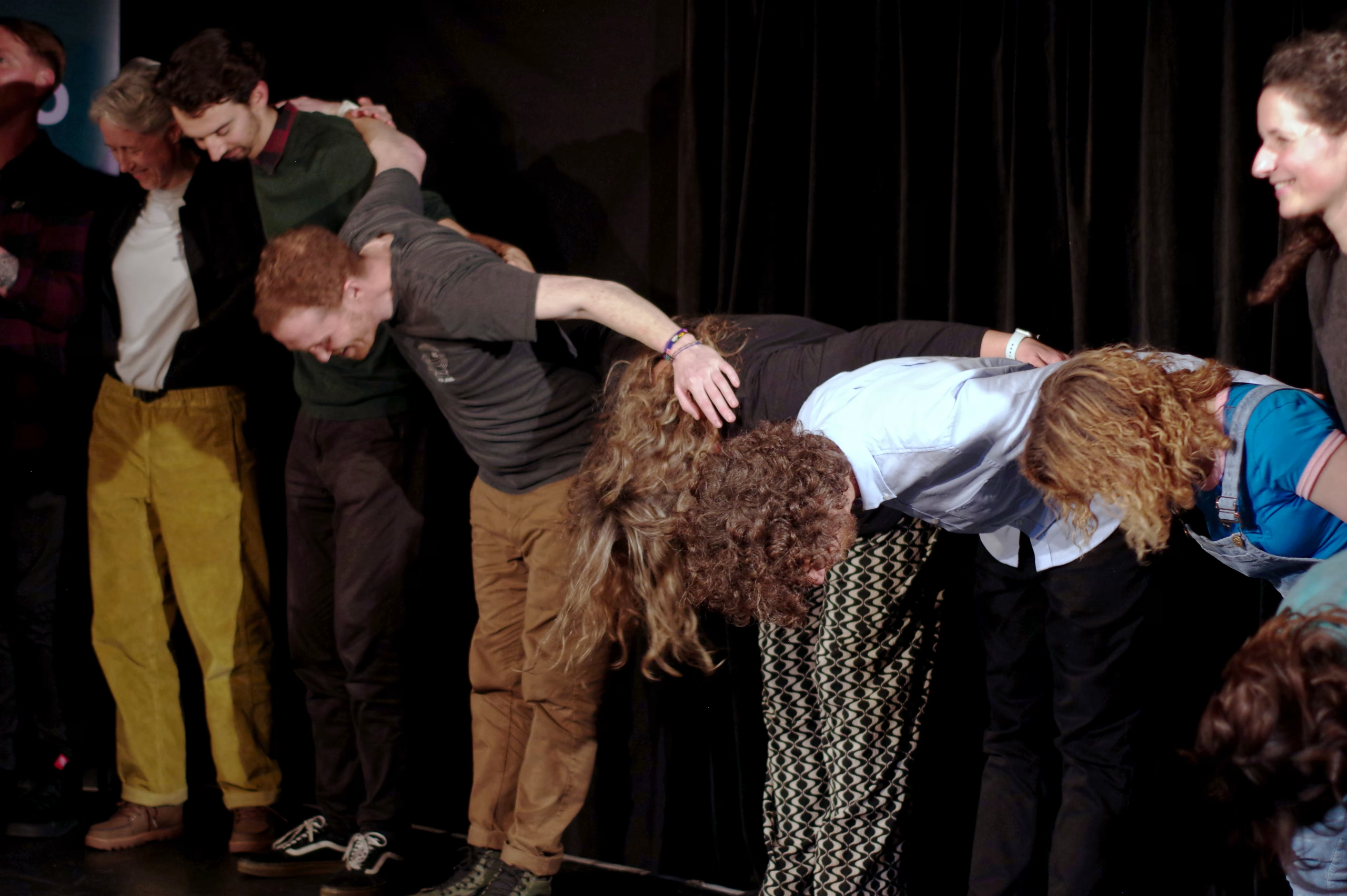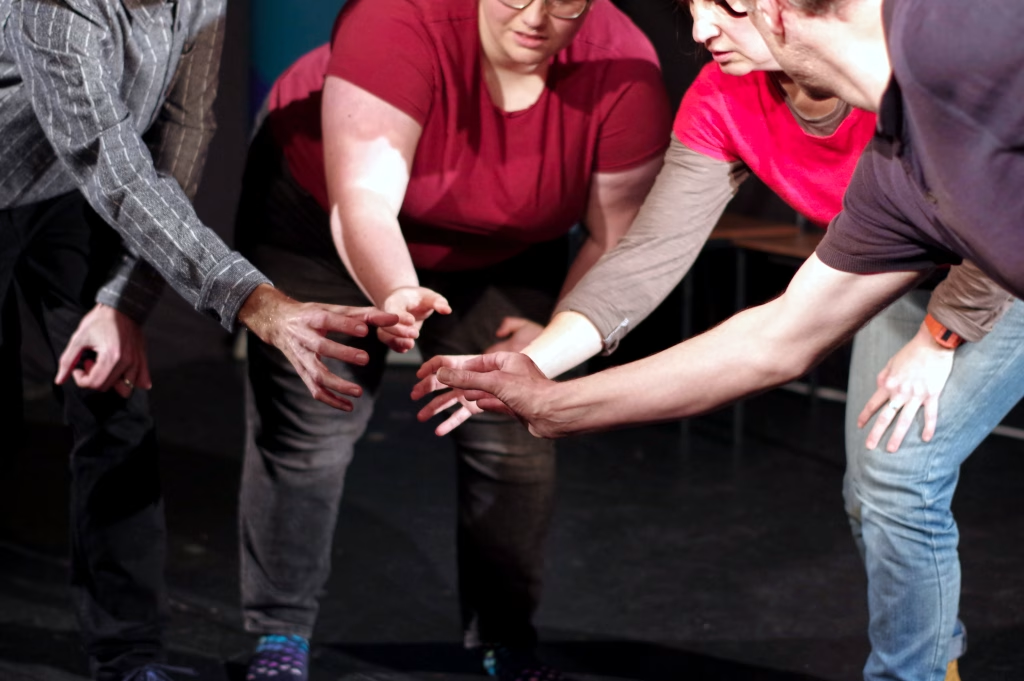
Improvisation for Beginners
CREATIVITY, CALM AND COMMUNITY
Why take an improv class?
Improv is not about being funny, clever or confident. And it’s definitely not about performing. It’s about listening, connecting and cooperating.
Improvisation does not just help with performance. It can build skills ,including
- Flexibility while staying focussed
- Confidence and calm in challenging situations
- Listening to understand
- Creativity and Problem-Solving for work and life
- Connecting with anyone
- Communication skills for groups of any size
- Teamwork skills and collaboration
Learning to make it up as you go can make your whole life easier and more enjoyable.
In our beginner classes, you’ll learn simple exercises and games that will build on skills you already have. Our experienced facilitators will looked after and gently challenge you. You may find yourself doing things you never thought you could.
“Warm, welcoming, like instantly being immersed in a beautiful, friendly bubble.”
– Anon, 2023
READY TO GIVE IT A TRY?
Our beginner classes

Taster Classes in Brighton
A whistle-stop tour of some of our favourite games.

Improv Level 1 Classes in Brighton
A solid grounding in improv principles.

Taster Classes Online
Our favourite games adapted for a video conference setting.

Beginner’s Classes online
Themned units of punchy one-hour sessions.
“So mind-blowing and fun, your face will hurt from smiling.”
– Julia, 2024

WHAT IF YOU ARE NOT AN performer?
What will the class be like?
AndAlso’s improv classes don’t require any previous training or knowledge. You don’t need to be an actor or an extrovert, and you certainly don’t need to be funny. Our students include teachers and doctors, homemakers and students, coaches, therapists, and those who do not work. We are skilled in making accommodations for learners with neurodiversity, long-term illness, and disability.
Our classes are accessible to everyone and give you the skills and opportunities to make it up, make each other laugh, and perhaps even surprise yourself.
Our classes are not:
- About being funny
- A competition
- A baptism of fire
- Scary
Our classes are:
- Are supportive
- Build community
- Increase challenge gradually
- Teach applicable skills
“I would find myself stepping into deep belly laughter every lesson.”
– Julia, 2024
Other resources
-

How to manage nerves before an improv class?
I like telling this story to new improvisers because it often surprises them: I started doing improv because I hated improv. Well, not quite hated it. Friday mornings at drama
-

How to Prepare for your first improv class
People often ask us what they need to do to prepare for their first improv class. The genuine truth is nothing. You just turn up, as you, and experience it.
